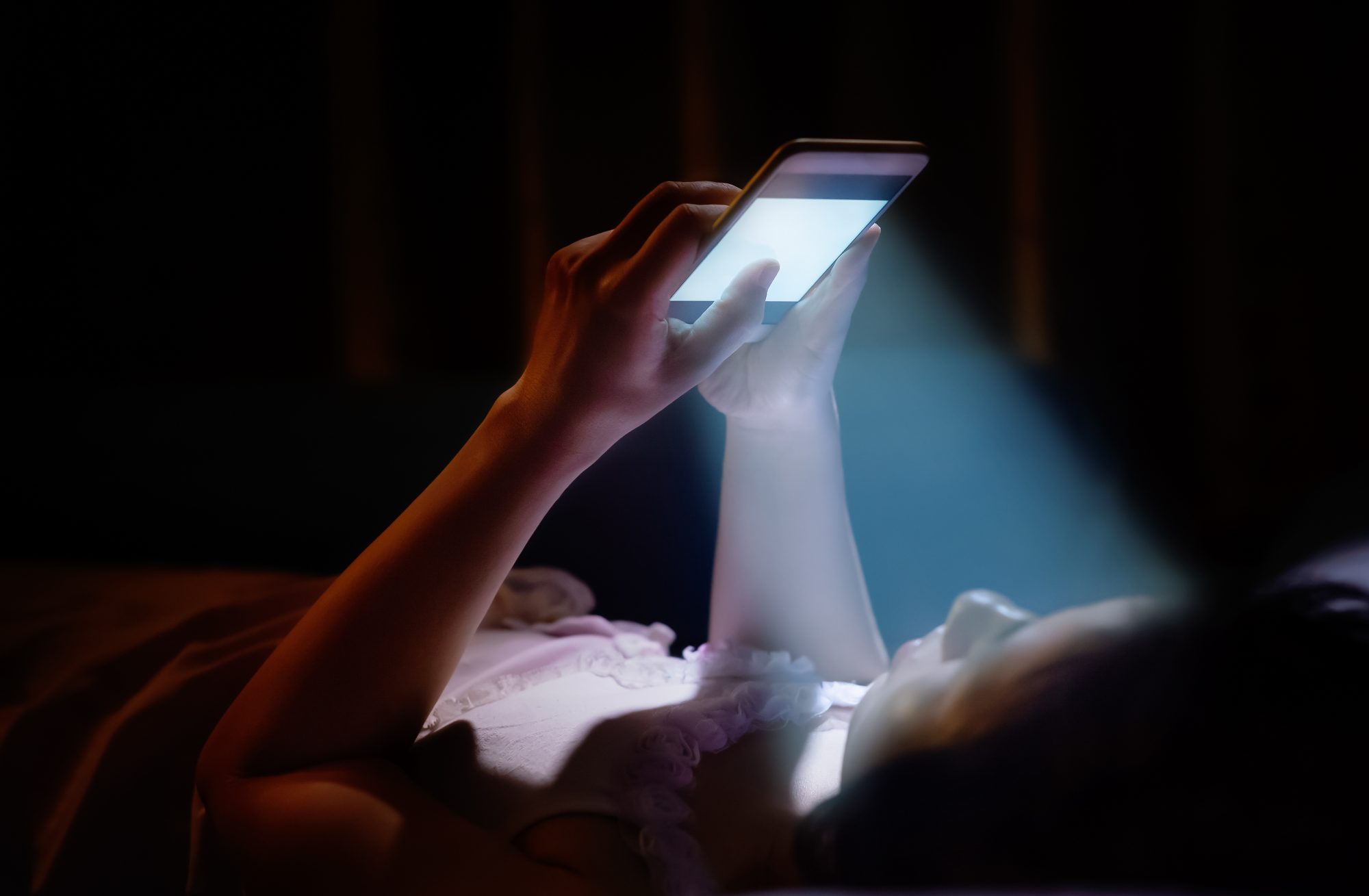Excessive screen time is linked to obesity, psychological problems and acceleration of aging, but can a reduction of blue light really slow down the aging process?
We all know excessive screen time is bad for us, and many of us will be aware of some of the dangers of blue light exposure.
In fact, using laptops, phones, TVs and anything that emits blue light, increases our chances of becoming obese and developing psychological issues.
Blue light exposure accelerates aging
And now a study has identified a new problem: blue light actually speeds up the aging process.
By studying fruit flies, scientists have discovered that our basic cellular functions could be impacted by the blue light emitted by these devices. Results have been published in Frontiers in Aging.
Detrimental effects on our body, from skin and fat cells, to sensory neurons
Dr Jadwiga Giebultowicz explains: “Excessive exposure to blue light from everyday devices, such as TVs, laptops, and phones, may have detrimental effects on a wide range of cells in our body, from skin and fat cells, to sensory neurons.
“We are the first to show that the levels of specific metabolites – chemicals that are essential for cells to function correctly – are altered in fruit flies exposed to blue light.
“Our study suggests that avoidance of excessive blue light exposure may be a good anti-aging strategy.”

How can we slow down aging?
It’s quite simple: turn off the blue light, say researchers at Oregon State University.
Science shows that fruit flies who were kept in constant darkness lived longer than those exposed to blue light. This is because blue light triggers tress protective genes.
Giebultowicz elucidates: “To understand why high-energy blue light is responsible for accelerating aging in fruit flies, we compared the levels of metabolites in flies exposed to blue light for two weeks to those kept in complete darkness.”
The research found that blue light exposure caused significant differences in the levels of metabolites in the cells of fly heads. Of particular interest was the fact that levels of the metabolite succinate were increased, but glutamate levels were lowered.
“Succinate is essential for producing the fuel for the function and growth of each cell. High levels of succinate after exposure to blue light can be compared to gas being in the pump but not getting into the car,” added Giebultowicz.
“Another troubling discovery was that molecules responsible for communication between neurons, such as glutamate, are at the lower level after blue light exposure.”
Blue light accelerates aging and premature death in flies
In fact, researchers discovered that because the cells are operating at suboptimal level, this may even result in premature death, which explains their previous findings that blue light accelerates aging.
Humans are exposed to blue light all day long
Blue light comes from the sun, digital screens (TVs, computers, laptops, smartphones and tablets), electronic devices, and fluorescent and LED lighting to name but a few – so avoiding blue light is actually increasingly difficult.
The bottom line is: humans are constantly exposed to blue light. All we can do is try and reduce the time we spend watching TV or scrolling through our phones.
“LEDs have become the main illumination in display screens such as phones, desktops and TVs, as well as ambient lighting, so humans in advanced societies are exposed to blue light through LED lighting during most of their waking hours. The signaling chemicals in the cells of flies and humans are the same, so there is potential for negative effects of blue light on humans,“ explains Giebultowicz.
“We used a fairly strong blue light on the flies – humans are exposed to less intense light, so cellular damage may be less dramatic. The results from this study suggests that future research involving human cells is needed to establish the extent to which human cells may show similar changes in metabolites involved in energy production in response to excessive exposure to blue light,“ concludes Giebultowicz.
In the future, researchers hope to study the effects directly on human cells.











